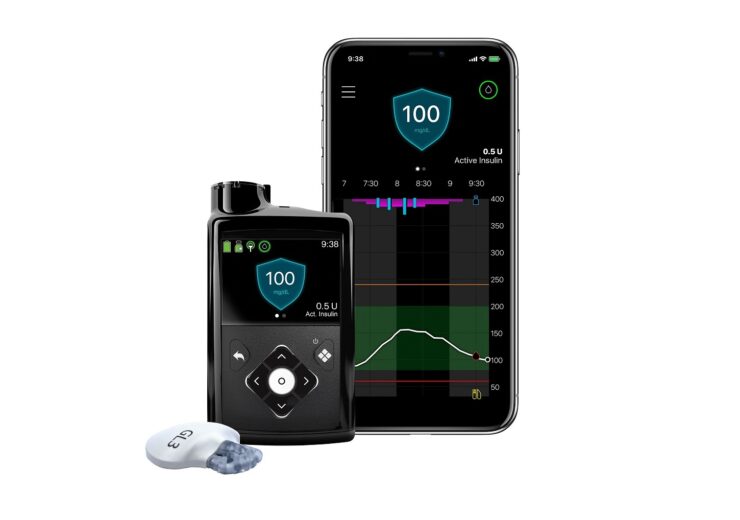The one-year data from the ADAPT study, which evaluated the safety and efficacy of AHCL therapy, showed that MiniMed 780G AHCL is superior to multiple daily injections (MDI) of insulin with an intermittently scanned CGM (isCGM)

Medtronic’s MiniMed 780G AHCL system. (Credit: Medtronic)
Medical technology company Medtronic announced the superior performance of its MiniMed 780G advanced hybrid closed loop system (AHCL) in its ADAPT clinical study.
ADAPT evaluated the safety and efficacy of AHCL in patients with T1D, compared with Multiple Daily Injection (MDI) therapies using Flash Glucose Monitoring (FGM) or Continuous Glucose Monitoring (CGM).
According to one-year data from the ADAPT study, MiniMed 780G AHCL is superior to multiple daily injections (MDI) of insulin with an intermittently scanned CGM (isCGM).
Medtronic Diabetes senior global medical affairs director Ohad Cohen said: “These results further strengthen the case for us to move beyond the CGM-first paradigm to ensure patients experience these well-established clinical benefits of automated insulin delivery earlier at diagnosis.
“The MiniMed 780G system is taking care of users in ways that individuals just aren’t able to with manual injections, even with the best of intentions, as there are so many variables that impact blood sugar levels daily.”
In the initial six months of the study, participants using the AHCL system experienced a 27.6% absolute increase in Time in Range (TIR) and a 1.4% reduction in HbA1C, while those on MDI plus is CGM seen no increased time in hypoglycaemia.
The results improved overnight with a TIR rise of 30.2%, and all participants on MDI plus isCGM crossed over to the MiniMed 780G system, at the end of the six months.
The significant improvements were reproduced in the cross-over group, and those started on AHCL therapy experienced the sustained, at one year, said Medtronic.
The data from a second randomised controlled study sponsored by JDRF, dubbed CLVer Trial, showed that the use of an automated insulin delivery (AID) system resulted in superior results.
The study evaluated individuals aged seven to 17 years, with newly-diagnosed type 1 diabetes, in which the AID system resulted in 78% Time in Range compared to 64% in the standard care group.
Furthermore, early data from a small single-site study showed that users maintained glycaemic control in the same range as the current standard of care.
The MiniMed 780G system integrated with the company’s Guardian 4 Sensor is currently being reviewed by the Food and Drug Administration (FDA) for regulatory approval.
Medtronic Diabetes senior medical affairs director Jennifer McVean said: “There is a growing body of clinical evidence demonstrating the superiority of using automated insulin delivery systems as first-line treatment for type 1 diabetes rather than the standard stepwise approach of starting patients on a CGM first.
“These results demonstrate patient success earlier in the course of their disease and across the age spectrum. Considering this compelling evidence, we’re committed to expanding access to our MiniMed 780G system so more people living with diabetes have an opportunity to improve short- and long-term health outcomes.”
